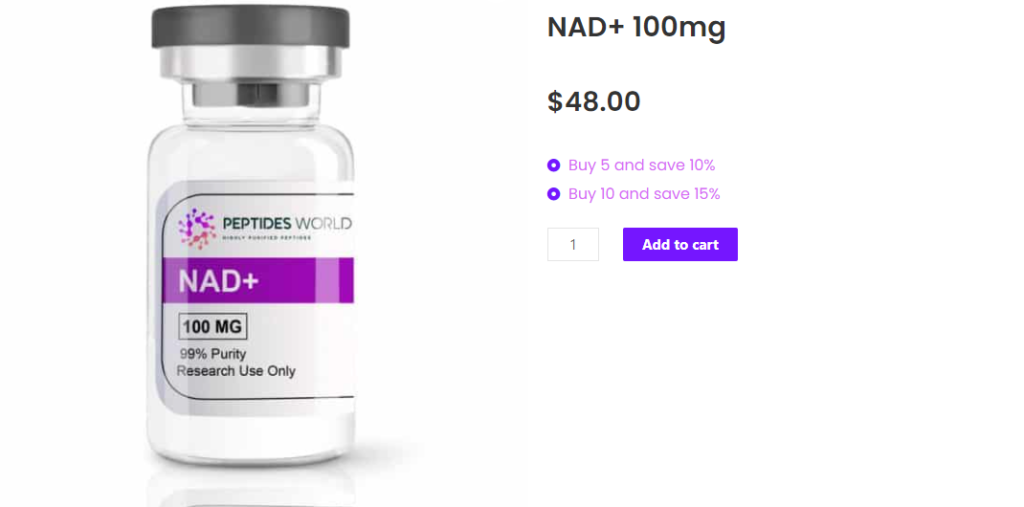In the world of health and longevity, scientists are continually uncovering the intricacies of cellular processes that govern our well-being. Among these, one molecule has risen to prominence for its pivotal role in cellular function and its potential implications for various aspects of health and aging: Nicotinamide adenine dinucleotide, or nad peptide . This coenzyme, found in all living cells, has garnered significant attention for its involvement in energy metabolism, DNA repair, and regulation of cellular stress responses. In recent years, research into NAD+ supplementation and its effects on health and longevity has surged, promising new avenues for disease prevention and anti-aging interventions.
Understanding NAD+:
NAD+ is a coenzyme present in all living cells and is involved in fundamental biological processes. It exists in two forms: oxidized (NAD+) and reduced (NADH). The conversion between these forms is crucial for numerous metabolic reactions, serving as an electron carrier in cellular respiration and other redox reactions. Beyond its role in energy production, NAD+ participates in various enzymatic reactions, including those involved in DNA repair, cellular signaling, and stress responses.
The NAD+ Decline with Age:
One of the most intriguing aspects of NAD+ biology is its correlation with aging. Research has shown that NAD+ levels tend to decline with age in various organisms, including humans. This decline is thought to contribute to age-related cellular dysfunction and the onset of age-related diseases. Several factors contribute to this decline, including decreased biosynthesis of NAD+, increased NAD+ consumption due to higher metabolic demands, and impaired NAD+ recycling pathways.
The Role of NAD+ in Cellular Health:
NAD+ plays a critical role in maintaining cellular health through its involvement in several key pathways:
1. Energy Metabolism:
NAD+ is a key player in cellular respiration, the process by which cells generate energy in the form of adenosine triphosphate (ATP). In the mitochondria, NAD+ acts as a coenzyme in the electron transport chain, facilitating the transfer of electrons and the production of ATP. Without sufficient NAD+, cellular energy production can be compromised, leading to decreased vitality and increased susceptibility to metabolic disorders.
2. DNA Repair:
NAD+ is essential for DNA repair processes, including base excision repair and DNA strand break repair. Enzymes such as poly(ADP-ribose) polymerases (PARPs) use NAD+ as a substrate to facilitate DNA repair in response to DNA damage caused by various stressors, including radiation, oxidative stress, and genotoxic chemicals. Maintaining adequate NAD+ levels is crucial for preserving genomic integrity and preventing the accumulation of DNA damage associated with aging and disease.
3. Cellular Signaling:
NAD+ also serves as a substrate for various signaling enzymes, such as sirtuins, which play key roles in regulating cellular processes related to aging and stress response. Sirtuins are a class of NAD+-dependent deacetylases that modulate the activity of numerous transcription factors and metabolic enzymes, influencing processes such as gene expression, apoptosis, and mitochondrial biogenesis. By regulating sirtuin activity, NAD+ levels can impact cellular resilience and longevity.
NAD+ Supplementation: A Promising Intervention:
Given the critical role of NAD+ in cellular health and its decline with age, researchers have explored the potential benefits of NAD+ supplementation as a means to mitigate age-related decline and promote healthy aging. Several strategies have been employed to boost NAD+ levels, including the administration of NAD+ precursors such as nicotinamide riboside (NR) and nicotinamide mononucleotide (NMN), as well as the activation of NAD+-dependent enzymes like sirtuins.
1. NAD+ Precursors:
NAD+ precursors are compounds that can be converted into NAD+ within the body, thereby increasing cellular NAD+ levels. Nicotinamide riboside (NR) and nicotinamide mononucleotide (NMN) are two such precursors that have been studied extensively for their potential health benefits. These compounds are readily absorbed and converted into NAD+ in cells, replenishing NAD+ pools and supporting various NAD+-dependent processes.
2. Sirtuin Activation:
Another approach to boosting NAD+ levels is through the activation of sirtuins, the NAD+-dependent deacetylases implicated in longevity and cellular resilience. Resveratrol, a polyphenol found in red wine, has been shown to activate sirtuins and mimic the effects of caloric restriction, a dietary intervention known to increase NAD+ levels and extend lifespan in various organisms. While the direct impact of resveratrol on human health is still under investigation, its ability to modulate sirtuin activity highlights the potential of NAD+ targeting strategies for promoting healthy aging.
The Future of NAD+ Research:
As our understanding of NAD+ biology continues to evolve, so too does the potential for novel interventions aimed at preserving cellular health and extending lifespan. Ongoing research efforts seek to elucidate the mechanisms underlying NAD+ decline with age, identify new NAD+ precursors and sirtuin activators, and explore the therapeutic potential of NAD+ supplementation in age-related diseases.
1. NAD+ in Age-Related Diseases:
Given its central role in cellular metabolism and stress response, NAD+ dysregulation has been implicated in a range of age-related diseases, including metabolic disorders, neurodegenerative diseases, and cardiovascular conditions. Therapeutic strategies aimed at restoring NAD+ levels hold promise for mitigating disease progression and improving outcomes in these conditions.
2. NAD+ and Longevity:
Studies in model organisms have provided compelling evidence that interventions targeting NAD+ metabolism can extend lifespan and improve healthspan, the period of life free from age-related disease and disability. While translating these findings to humans remains a challenge, ongoing clinical trials are exploring the potential benefits of NAD+ boosters in promoting healthy aging and preventing age-related diseases.
Conclusion:
Nicotinamide adenine dinucleotide (NAD+) stands at the forefront of cellular health and longevity research, with its central role in energy metabolism, DNA repair, and cellular signaling making it a key player in the aging process. As NAD+ levels decline with age, interventions aimed at replenishing NAD+ pools hold promise for promoting healthy aging and preventing age-related diseases. Whether through the administration of NAD+ precursors or the activation of NAD+-dependent enzymes like sirtuins, harnessing the power of NAD+ represents a compelling avenue for extending lifespan and improving quality of life in an aging population. As research in this field continues to advance, the future holds exciting possibilities for unlocking the full potential of NAD+ in promoting cellular health and longevity.




